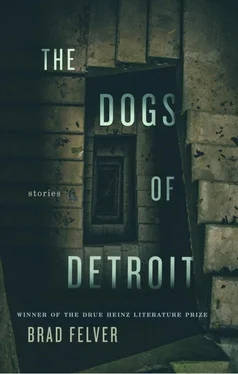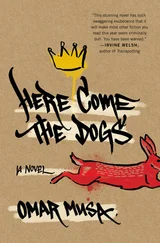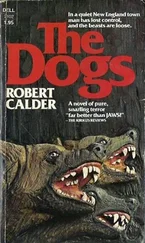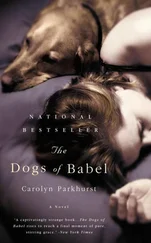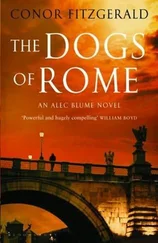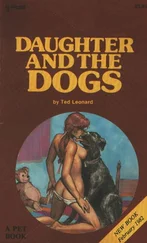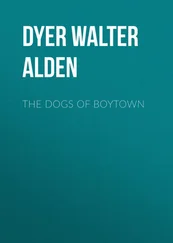One morning, I woke and looked out the window to see him hopping tombstones. He jumped from one to the other without touching the ground like some sinister slackliner who’d lost his rope.
“New game,” he told me. “Something I can play while you’re at school or sleeping away your life like a nudge.”
“Charley,” I said and stayed on our side of the fence.
“Don’t go puss on me now, Jack,” he said. “Go get the gloves, we’ll throw the leather like this. None of your dodging nonsense this way.”
He grinned. I told him I didn’t think so.
“What’s with you?” he said. “You’re going soft on me.”
I told him to piss off, and I walked back to the house to get ready for school.
That night at dinner, I could tell he was still angry with me. I’d broken our pact, drawn a line in the sand that said I’d gone far enough and he was on his own. He clanked dishes together, slopped his cream chicken down so it splattered, and slammed his glass down every time he drank. My father was still gone, working late that night, and Charley knew he was the only man around.
“Would you please settle down?” Starla asked and exhaled her cigarette. “You’ll break my dishes that way.”
“Piss off,” Charley said and glared at his plate.
We sat quietly for a while again, an angry, awkward silence.
Then Starla said, “I saw you out in that cemetery this morning. You need to stay out of there.”
“Or what?” Charley said very quickly, too quickly.
“Your father’s buried out there. It’s not some place for you to practice acting like a jumping frog.”
“I should’ve left a fat boot print on his grave,” Charley said. “I’ll make sure to do that tomorrow.”
Then Starla stood up and smacked Charley in the face. It cracked loudly, but it couldn’t have hurt much. It was more of a gesture than a punishment and felt like a piece of theater, something Starla had planned for so long that when she finally did, it seemed forced.
For a moment Charley was too stunned to do anything. He took short, shallow breaths and touched his face. And then he leapt across the table, scattered the dishes onto the floor and toppled the chairs, and started whaling on his mother. He went off, thumped on her until she was a bloody, moaning pile of human, her cigarette still somehow clamped in her jaw, still smoking. When I finally managed to pull him off, she made no movements, just moaned as the smoke rose from her as if she were starting to cremate.
Charley stared down at her and then looked up at me. His breathing quickened as if he just realized what he’d done and what that meant when my father got home. “Shit!” he said. He shuffled off, grabbed his Winchester and his pack, and disappeared through the cemetery and into the woods.
I carried Starla over to the couch, laid her down, covered her with an old afghan so she’d stay warm while she squinted at her soap operas. I found myself tending to her, even lighting her cigarettes, somehow proud of her for what she’d done because she must have known how Charley would react.
“That’s it,” my father said when he got home that night, and he didn’t speak about it anymore. I was scared for Charley, and I kept my eyes peeled for vultures, wondering if perhaps that was the better way to go.
When Charley emerged six days later, gaunt and pale, he looked like some extinct species rediscovered. He picked his way through the cemetery and hopped the low fence. My father and I had been in the backyard, pulling icicles from the moldy soffit, and Charley must have seen us, waited until we were outside. He carried his father’s Winchester on one shoulder, the chamber levered open, and on the other hung the rusty linkages of chain.
My father slowly unlatched his thick leather belt and stripped it out of his Carhartts. It was a menacing image, a Cut Bank knight drawing his sword, and I knew Charley was in for it. But he strode right past us as if indifferent to our existence, and I saw the dangling jaws of a grizzly trap hanging over his shoulder.
Charley disappeared into the garage and emerged with his hatchet. He pried open the jaw of the trap and set the trigger. He stepped away, looped the chain links around the cemetery fence, and latched the steel carabiner. Then he dropped our two-by-eight in front of the trap, like a plank descending into the leviathan’s throat. He stepped on, right in front of the trap, waited.
My father and I stared. Neither of us moved.
Charley raised his little fists. “New game,” he said.
Still we didn’t move.
He shuffled back, his heel bumping the trap. “Get on, Jack,” he said.
My father looked to me, motioned toward the two-by-eight with the hand that held his dangling belt, folded over onto itself. I hesitated, not knowing if I was doing my father’s bidding or Charley’s.
“Don’t be a nudge,” Charley said.
I stepped on. Charley glared at me like I was the enemy, like I was prey. His bloodshot eyes bulged. We had no leather, just our cracked, frozen fists. We all knew how it would end, knew that Charley couldn’t out-box me.
Charley attacked, came at me, and I bent my lead knee and snapped a jab. I pawed at him, didn’t let him inside. He slipped off the frozen board and I cracked him in the ribs. He came at me again, and I caught him with a straight right, flattened his nose, and it started to pour blood into his mouth. I waited on him to attack.
“Come on!” he said. “Come at me. Don’t be a nudge!” He had to breathe through his mouth and spit the blood onto the snow.
I pushed forward, swaying as I dropped lefts to the face and rights to the body, and Charley fell back. His heel pushed onto the trap again, nudged it back. He stood there, covered up his bloody face, and I sliced through his arms with an uppercut to his open jaw.
When he fell back, his right leg stomped into the bear trap as if on purpose, and the teeth sliced into him without a sound. No crack or thud, just the soft whisper of a fillet knife being thrown into wet sand. Charley fell immediately. It sliced and he fell like a switch had been tripped. He wailed, yelled out the kind of pitiful shriek normally reserved for the far reaches of the wilderness.
My father and I didn’t move. We knew his leg was broken, that he’d limp from now on. Charley howled and clutched the cemetery fence. I’m sure all my father saw was justice stolen from him again. A pathetic kid cuffed to a bear clamp, crying for his mother. But I saw more than that. I saw a mean kid who had sacked a trap from a bear’s clutches, and for a long time I stood in between Charley and my father and didn’t move to help while he moaned and fought his way up the fence like a wild animal thrashing against his shackles.
There is drought here, always drought. For ten years it has cemented the earth into a vast cracked slab, horizon to horizon. There is no more prairie grass, only towering squalls of topsoil that lurch across the land like hulking phantoms, vengeful and clumsy. There is the long quiet, the desperate wait for rain.
Nights, the boy, Wiley, lies next to his sister on their cot in the kitchen and listens to the pattering on the tin roof, wishing it were rain but knowing it is only a blowing mimic of dirt rain. He will scrape it from the windowpanes in the morning, from the pits between his toes, from his eyeballs, which are always scratched red. He is a slight, towheaded child, nearly fourteen but so quiet he seems younger. He carries his shoes as often as he wears them and always remembers to leave the last sip of water in his cup for Helen, his sister. She is the ornery one, two years younger and likely to kick his shins just before a foot race.
Читать дальше
